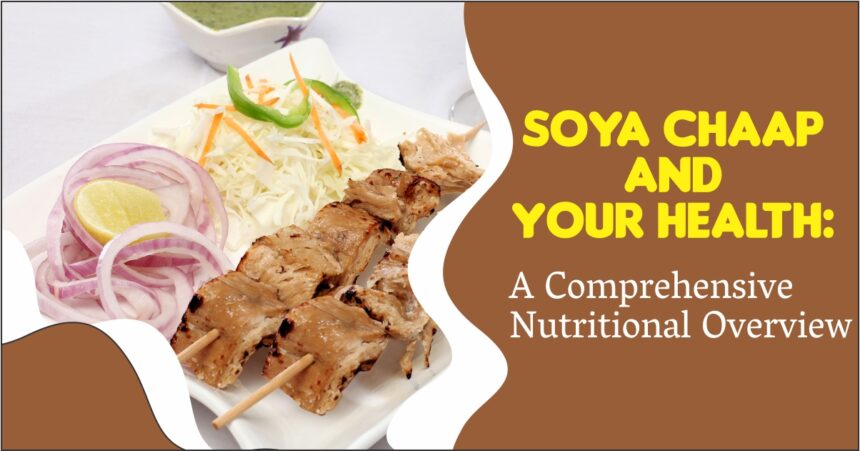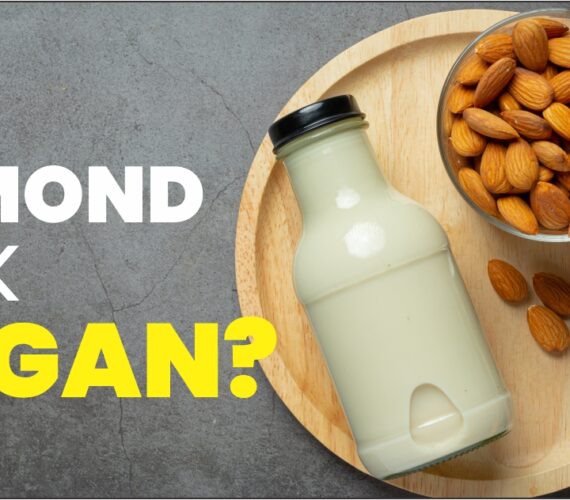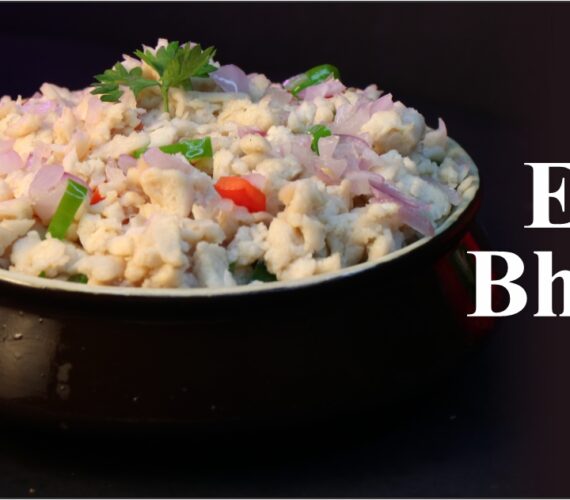What is Soya Chaap?
Soya chaap, also known as soy chaap, is a popular vegetarian dish in Indian cuisine. It is made up of soybean chunks or textured vegetable protein (TVP) that have been processed in such a way that their texture and taste are similar to that of meat. The soybean chunks are marinated in various spices and seasonings, and then typically grilled, roasted, or cooked in a flavorful gravy.
Soya chaap is known for its meaty texture and ability to absorb the flavors of the spices and sauces it’s cooked with. It’s a versatile ingredient that can be used in a variety of dishes, including kebabs, curries, and wraps. Soya chaap is a popular choice among vegetarians and vegans as a protein-rich substitute for meat in many Indian recipes.
Also Check :- Vezlay Soya Chaap
Benefits of Soya Chaap
Soya chaap offers several potential health benefits, making it a nutritious addition to a vegetarian or vegan diet. Here are some of the Soya Chaap Benefits:
Rich in Protein: Soya chaap is an excellent source of plant-based protein. It can help meet your daily protein needs, making it a suitable option for vegetarians and vegans.
Low in Saturated Fat: Soya chaap is low in saturated fat, making it a heart-healthy protein source. Diets low in saturated fat are associated with reduced risk of heart disease.
High in Fiber: Soya chaap contains dietary fiber, which is beneficial for digestive health. Fiber helps regulate bowel movements and may lower the risk of certain digestive problems.
Cholesterol-Free: Soya chaap is naturally free of cholesterol, which can contribute to heart health by helping to maintain healthy cholesterol levels.
Rich in Vitamins and Minerals: It is a good source of essential nutrients, including iron, calcium, magnesium, and B-vitamins. These nutrients are important for overall health, including bone strength and energy metabolism.
May Help Manage Weight: Soya chaap is relatively low in calories and can be a filling and satisfying food, which may help with weight management when included in a balanced diet.
Complete Amino Acid Profile: Soya chaap is one of the few plant-based foods that contains all the essential amino acids, making it a high-quality protein source.
Potential Hormonal Benefits: Soy contains phytoestrogens, which are plant compounds that may have health benefits. Some studies suggest they can help with hormonal balance and reduce the risk of certain hormonal-related conditions.
Lactose-Free: Soya chaap is a suitable protein option for individuals who are lactose intolerant or have a dairy allergy.
Versatile Ingredient: Soya chaap can be used in various dishes and cuisines, providing a meaty texture and absorbing the flavors of the spices and sauces it’s cooked with.
Despite its many benefits, it’s essential to consume soya chaap in moderation and as part of a balanced diet. Some individuals may have allergies or sensitivities to soy, so it’s important to be mindful of individual dietary needs and preferences.
Also Check:- Health Benefits of Vezlay Soya Chaap
Is Soya Chaap healthy?
As part of a balanced diet, soya chaap can be a healthy food choice, especially for vegetarians and vegans who are looking to increase their protein intake through a vegetarian diet. There are multiple health benefits associated with red meat as a result of its nutritional profile, such as being high in protein, low in saturated fat, and an excellent source of essential nutrients such as iron, calcium, and B vitamins.
Here are some reasons why soya chaap can be considered healthy:
Protein Content: Soya chaap is a valuable source of plant-based protein. Protein is essential for building and repairing tissues, and it can help you feel full and satisfied.
Low in Saturated Fat: Soya chaap is naturally low in saturated fat, which is linked to heart health. Reducing saturated fat intake can lower the risk of heart disease.
Cholesterol-Free: Soya chaap is naturally free of cholesterol, which is beneficial for heart health as high cholesterol levels are associated with an increased risk of heart disease.
Rich in Nutrients: It provides important nutrients such as iron, calcium, magnesium, and B-vitamins, which are essential for various bodily functions, including bone health and energy metabolism.
Versatility: Soya chaap can be prepared in various ways and is versatile enough to be used in a wide range of dishes, providing a meaty texture and absorbing flavors well.
Fiber Content: While not extremely high in fiber, soya chaap does contain some dietary fiber, which is good for digestive health.
However, it’s important to keep a few considerations in mind:
Allergies and Sensitivities: Some individuals may have soy allergies or sensitivities, so it’s crucial to be aware of any adverse reactions.
Processed Varieties: Some commercially available soya chaap products may contain added preservatives or flavor enhancers, so it’s advisable to read labels and choose options with minimal additives.
Moderation: Like any food, moderation is key. While soya chaap can be a healthy part of your diet, it should be consumed as part of a balanced and varied diet.
Overall, soya chaap can be a healthy and nutritious addition to your meals, but it’s essential to consider your individual dietary needs and preferences and to consume it as part of a well-rounded diet that includes a variety of foods.
Also Check :- Vezlay Soya Chaap Recipe
Is Soya Chaap healthier than Chicken?
The comparison between soya chaap and chicken in terms of healthiness depends on various factors and individual dietary preferences. Here are some key points to consider when comparing the two:
Soya Chaap:
Protein Source: Soya chaap is a plant-based protein source and is naturally cholesterol-free, making it a good choice for individuals looking to reduce their cholesterol intake.
Low in Saturated Fat: Soya chaap is low in saturated fat, which is beneficial for heart health. High saturated fat intake is associated with an increased risk of heart disease.
Complete Amino Acids: Soya chaap contains all the essential amino acids, making it a high-quality protein source.
Vegan and Vegetarian-Friendly: Soya chaap is suitable for vegetarians and vegans, providing a meaty texture and protein alternative.
Fiber Content: While not extremely high in fiber, soya chaap contains some dietary fiber, which can be beneficial for digestion.
Chicken:
Lean Protein: Chicken is a lean source of animal protein, low in fat (especially if you remove the skin) and a good source of high-quality protein.
B Vitamins: Chicken is rich in B-vitamins, particularly niacin, which is essential for various bodily functions.
Iron: It provides heme iron, which is easily absorbed by the body and can help prevent iron deficiency.
However, whether one is healthier than the other depends on your dietary needs and preferences. Here are a few factors to consider:
Dietary Preference: If you’re a vegetarian or vegan, soya chaap is the obvious choice. For non-vegetarians, chicken may be their preferred source of protein.
Cholesterol: Soya chaap is naturally cholesterol-free, whereas chicken contains cholesterol. If you’re concerned about cholesterol, this might influence your choice.
Saturated Fat: Chicken, especially when prepared with the skin, can be higher in saturated fat compared to soya chaap. If you’re watching your saturated fat intake for heart health, soya chaap might be a better option.
Nutrient Profile: Chicken provides a different set of nutrients compared to soya chaap, including heme iron, B-vitamins, and some essential minerals.
In conclusion, both soya chaap and chicken can be part of a healthy diet when consumed in moderation and as part of a balanced overall diet. Your choice should be based on your dietary preferences, nutritional needs, and health goals. It’s important to consider the overall context of your diet and not just focus on a single food item.
Also Check :- Vezlay Veg Chicken
Is Soya Chaap good for diet?
Yes, soya chaap can be a good addition to a balanced diet. It is a nutritious and versatile plant-based protein source that can be beneficial for various dietary preferences, including vegetarian and vegan diets. Soya chaap is low in saturated fat, cholesterol-free, and high in protein, making it a healthy choice for those looking to meet their protein needs. However, it’s essential to consume it in moderation and as part of a well-rounded diet that includes a variety of foods to ensure you receive a wide range of nutrients. Additionally, individuals with soy allergies or sensitivities should be cautious when including soya chaap in their diet.
Does Soya Chaap have cholesterol?
No, soya chaap does not contain cholesterol. Cholesterol is a substance found exclusively in animal-derived products, such as meat, eggs, and dairy. Since soya chaap is made from soybeans, which are plant-based, it is naturally cholesterol-free. This makes soya chaap a suitable choice for individuals who are looking to reduce their dietary cholesterol intake or follow a vegetarian or vegan diet.
Does Soya Chaap contain fat?
Yes, soya chaap does contain some amount of fat, but it is relatively low in fat compared to many other protein sources. The fat content in soya chaap can vary depending on how it is prepared and cooked. However, it is generally considered a lean source of protein. To keep it as healthy as possible, you can choose cooking methods that minimize added fats, such as grilling, baking, or sautéing with minimal oil. Removing the skin or any visible fat can further reduce the fat content in soya chaap preparations.
Is Soya Chaap good for weight loss?
Soya chaap can be a beneficial addition to a weight loss diet when consumed in moderation and as part of a balanced eating plan. Here’s why:
Low in Calories: Soya chaap is relatively low in calories compared to many meat-based alternatives, making it a suitable option for those looking to control their calorie intake for weight loss.
High in Protein: Soya chaap is a good source of plant-based protein. Protein helps you feel full and satisfied, reducing the likelihood of overeating or snacking on unhealthy options.
Low in Saturated Fat: Soya chaap is naturally low in saturated fat, a type of fat linked to weight gain and cardiovascular health issues. Choosing low-fat cooking methods further enhances its weight loss potential.
Versatile and Filling: Soya chaap can be used in various dishes, providing a meaty texture and absorbing flavors well. This versatility can help you create satisfying, low-calorie meals.
Aids Muscle Preservation: The protein in soya chaap can aid in the preservation of lean muscle mass during weight loss, ensuring that you lose fat rather than muscle.
However, it’s important to consume soya chaap as part of an overall healthy diet that includes a variety of foods. Avoid overindulging, as portion control is crucial for successful weight management. Additionally, consider individual dietary preferences and any allergies or sensitivities. Consulting with a healthcare professional or dietitian can provide personalized guidance for your weight loss journey.








